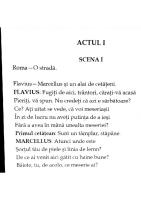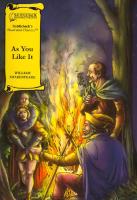Winter Poem by William Shakespeare Interpretation [PDF]
Amalia Khoirun Nisaa’ / 15202241066 Winter by William Shakespeare The second stanza of Winter by William Shakespeare t
28 1 105KB
Papiere empfehlen
![Winter Poem by William Shakespeare Interpretation [PDF]](https://vdoc.tips/img/200x200/winter-poem-by-william-shakespeare-interpretation.jpg)
- Author / Uploaded
- Amalia Khoirun Nisaa
Datei wird geladen, bitte warten...
Zitiervorschau
Amalia Khoirun Nisaa’ / 15202241066
Winter by William Shakespeare
The second stanza of Winter by William Shakespeare tells about the gloomy situation in winter. This gloomy situation was impacted on condition of environmental, human, and animals. William Shakespeare builds up the impression of cold with great imagery. He creates a vivid picture in the reader’s mind with personification of wind and birds. So, this poem allows the reader to compose images of their own of how the situation happens in winter. The environment is very inconvenient. The wind that blows during the winter is very noisy and disruptive, thus makes people who hear the sound become gloomy because they can’t hear the lovely sound. Consider this line “When all aloud the wind doth blow,” Shakespeare personifies the wind in the winter season by saying that it is loud, so readers could imagine how disruptive the environment during winter season. Winter was impacted on human condition too. The cold weather makes the human body in adverse conditions. Their faces turn red because of the cold weather and it turns raw as they often rub it in order to keep their faces warm. People are become sick. The disease caused by cold weather like coughing disturbed the praying in the church. Consider these line “And coughing drowns the parson's saw,” and “And Marian's nose looks red and raw,” Shakespeare uses metaphor in word “drowns” to guide us to sense how pathetic condition of people during the winter. Animals were also affected by the winter. Winter makes the birds become gloomy because they can only sit and brood. They cannot fly or sing. At night, there was only the sound of owls singing. The owl’s voice sounded creepy, and it makes people who hear the sound become gloomy. Consider these line “And birds sit brooding in the snow,” and “Then nightly sings the staring owl,” Shakespeare uses personification in word “brooding” and “sings” to encourages us to develop a perspective that animals also suffered during the winter.









